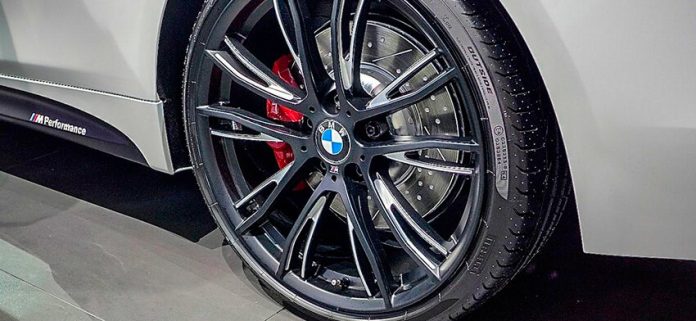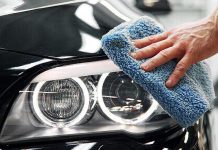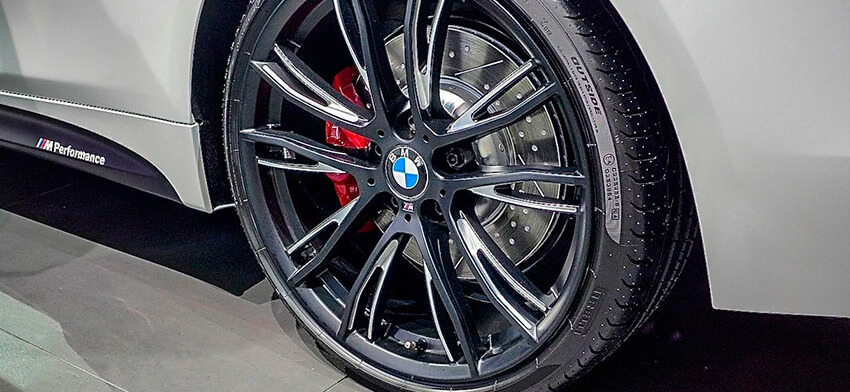
Alloy wheels are more durable and easier to maintain than their older stamped metal counterparts, however, like everything else on your car, they also need to be cleaned regularly to avoid corrosion. Here are some helpful alloy wheel maintenance tips that you can do in your own garage with simple tools.
Wheels can become dirty and corroded from brake dust, and even road salt and slag used to treat icy roads. Even very neglected wheels can be restored to their pristine shine.
What are “alloy wheels”?
You may be wondering what exactly an “alloy wheel” or otherwise “alloy wheel” is. An alloy is a combination of two or more metals, aluminum and magnesium. These wheels look beautiful, are well balanced and have high strength.
There are different types of alloy wheels with different coatings. Let’s find out the difference so that we know how to clean alloy wheels properly and easily.
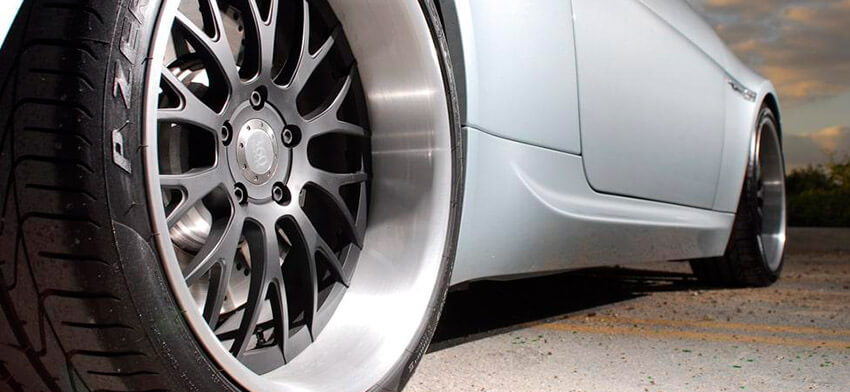
Types of Alloy Wheels and the Difference in Gloss
Most cars produced today come with standard alloy wheels. They are also called aluminum wheels, which are made from a mixture of aluminum and nickel.
They are more attractive to the eye than steel wheels, but are much lighter and at the same time strong and durable. Less weight means your car’s suspension will be lighter, it will accelerate better, and it will get better fuel economy.
There are two types of alloy wheels: cast aluminum and billet aluminum. Cast aluminum wheels are made by pouring molten aluminum into a mold, while billet aluminum wheels are machined from a single piece of aluminum.
When cleaning and polishing your alloy wheels, keep in mind that with cast wheels you can polish them, but you will never be able to make them shine like chrome, so don’t try it. Billet wheels, on the other hand, can be polished until they look like chrome.
Alloy Wheels
Alloy wheels are certainly very beautiful, but not everyone knows that they get dirty very quickly. It is not necessary to go to the car wash every day because of this. Every car owner should know how to clean the rims from accumulated dirt and how to care for the wheels. Acidic cleaning solutions should not be used on polished alloy wheels, as they corrode the surface. Read on to find out specific brands of cleaning products that are safe for these types of alloy wheels.
Alloy Wheels vs. Steel Wheels
Alloy wheels have been improved to become more and more durable, however, in terms of strength and durability, steel wheels still have an advantage: steel is rigid and extremely difficult to bend.
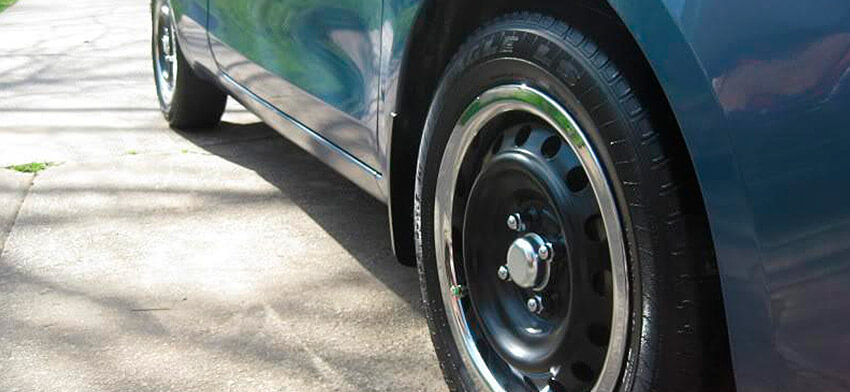
Because steel wheels are much heavier, they can put stress on your car’s suspension and other components, reduce acceleration and increase fuel consumption. Because of this, they are used for powerful, heavy-duty vehicles and in winter to provide more traction on slippery, icy roads.
The Biggest Enemy of Alloy Wheels
Aside from the usual dust, dirt, water, and mineral stains, the worst enemy of alloy wheels is actually black or brown brake pad deposits.
These brake deposits form every time you use the brakes. When you use the brakes, a component called the calipers squeeze the rotors to slow the wheels. To reduce wear, the calipers have linings that contact the rotors.
When semi-metallic brake pads grind onto cast iron rotors, it creates brake dust, which is made up of iron particles from the rotors and carbon and metallic residue from the brake pads.
This is not a sign of brake failure, but the intense friction and heat generated by the wheels when braking makes brake dust very corrosive. This means that you will have to clean brake dust regularly to keep your alloy wheels safe.
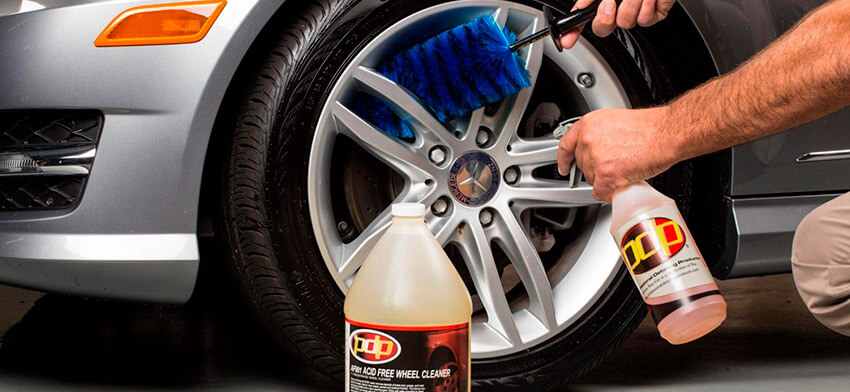
How to Clean Alloy Wheels – Cleaning Products
Vinegar and Hot Water
Vinegar is a universal cleaning solution with natural acids that can act on many substances, it is harmless, odorless and safe to touch. Dissolve some vinegar in a bucket of hot water as a cleaning solution.
If your alloy wheels are not too dirty, you can try this simple home remedy. However, do not use vinegar on coated and polished alloy wheels. As noted above, do not use acidic cleaners on these types of alloy wheels.
Oven Cleaner
If you need something more effective than vinegar, you can grab yourself some oven cleaner, which you probably have in your home. Oven cleaner can remove stubborn mineral stains, grease and rust in minutes.
Specialized Cleaners for Alloy Wheels
The best way to clean alloy wheels is to buy specialized cleaners from a supermarket or auto parts store and even the toughest stains will be a piece of cake.
A wheel cleaner such as Hot Rims Aluminum Wheel Cleaner is highly recommended as it can handle all types of polished metal: aluminum, stainless steel, chrome, brass or copper.
If your car has alloy and polished wheels, use only non-acidic solutions. Some safe options include SONAX Wheel Cleaner Full Effect, Wolfgang Tire & Wheel Cleaner and P21S Wheel Cleaner, which cost around 900-1000 rubles. per bottle.
How to Clean Alloy Wheels – Step by Step:
1. Rinse
First, hose down the wheels to remove dirt and brake dust. Be sure to rinse every part, including the inside surface around the axle.
It is best to use an adjustable nozzle to remove stuck-on debris with a high-pressure jet. If you do not have an adjustable nozzle or pressure nozzle, pinch the opening of the hose to create a stronger, more concentrated stream.
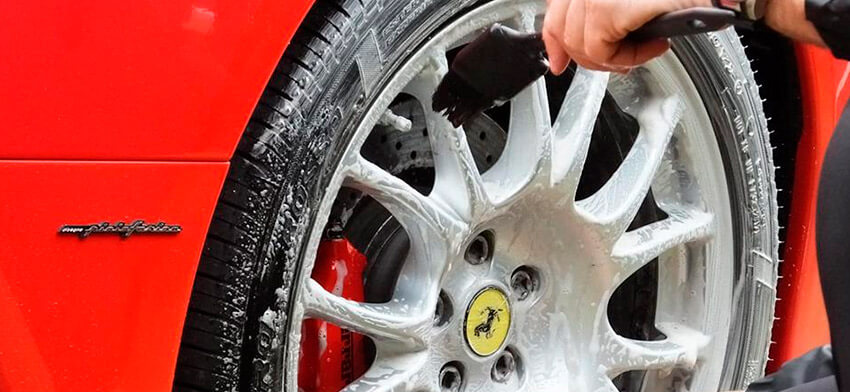
2. Apply the product
If your wheels have plastic hub caps, remove them before attempting this task. Spray a generous amount of your chosen cleaner over the entire wheel, adding extra spray to hard to reach areas. Let the cleaner sit for at least 2-3 minutes to allow it to penetrate the dried-on substances. This will make cleaning later much easier.

3. Scrub
After soaking, tackle the least dirty areas first, then the most problematic ones. This will give you more time to soak the dirtier areas. Use a soft-bristled brush with a flexible rod to easily scrub every corner of the wheel without scratching the surface. Pull it through the spokes to clean the entire surface from front to back. Don’t forget the rim bolts, where brake dust especially accumulates. You can use an old toothbrush to do a more precise job. However, since you will be cleaning alloy wheels often, it is best to use a car cleaning brush.
4. Rinse and Wipe
Rinse thoroughly with a wide nozzle for greater coverage. Make sure there is no cleaning solution left to avoid drying residue and possible corrosion. Then wipe the wheels dry with a soft microfiber cloth to avoid leaving water spots and tiny scratches on the wheels.
5. Waxing
Applying sealants will give your wheels a glossy, shiny look. More importantly, sealants designed specifically for alloy wheels will provide an extra layer of protection that makes it difficult for dirt, dust and debris to stick to your wheels.
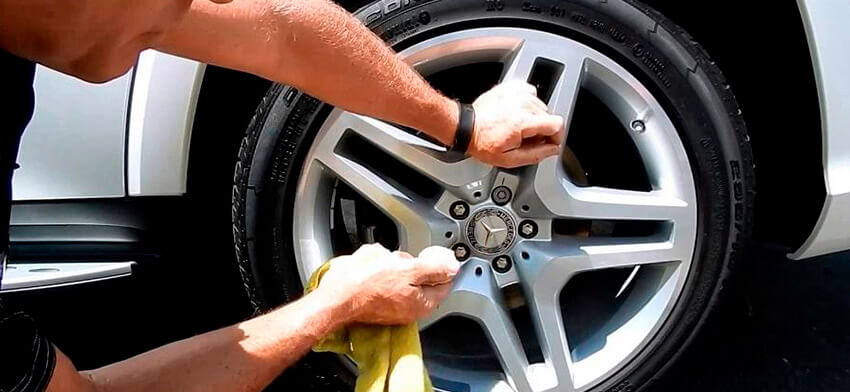
Now you know how to clean alloy wheels at home, don’t forget to take care of your wheels while driving your favorite car. It’s not just about keeping your car looking clean and new, regularly cleaning your alloy wheels will protect them from corrosive brake dust that accumulates while driving.
REMEMBER: You can always contact our car service, where your car will be gladly provided with professional technical assistance. You can also sign up for a scheduled technical inspection with us! Please familiarize yourself with our services for car repair and diagnostics.
,
VEBER-AUTO car service
194044, St. Petersburg
Neyshlotskiy pereulok, 5, building 3
District: Vyborgskiy
Metro: Vyborgskaya – 800 m.
,
Seven days a week, from 9:00 to 21:00.
,
sto@veberauto.ru
,
8 (812) 321-00-00
Source: veber-service


